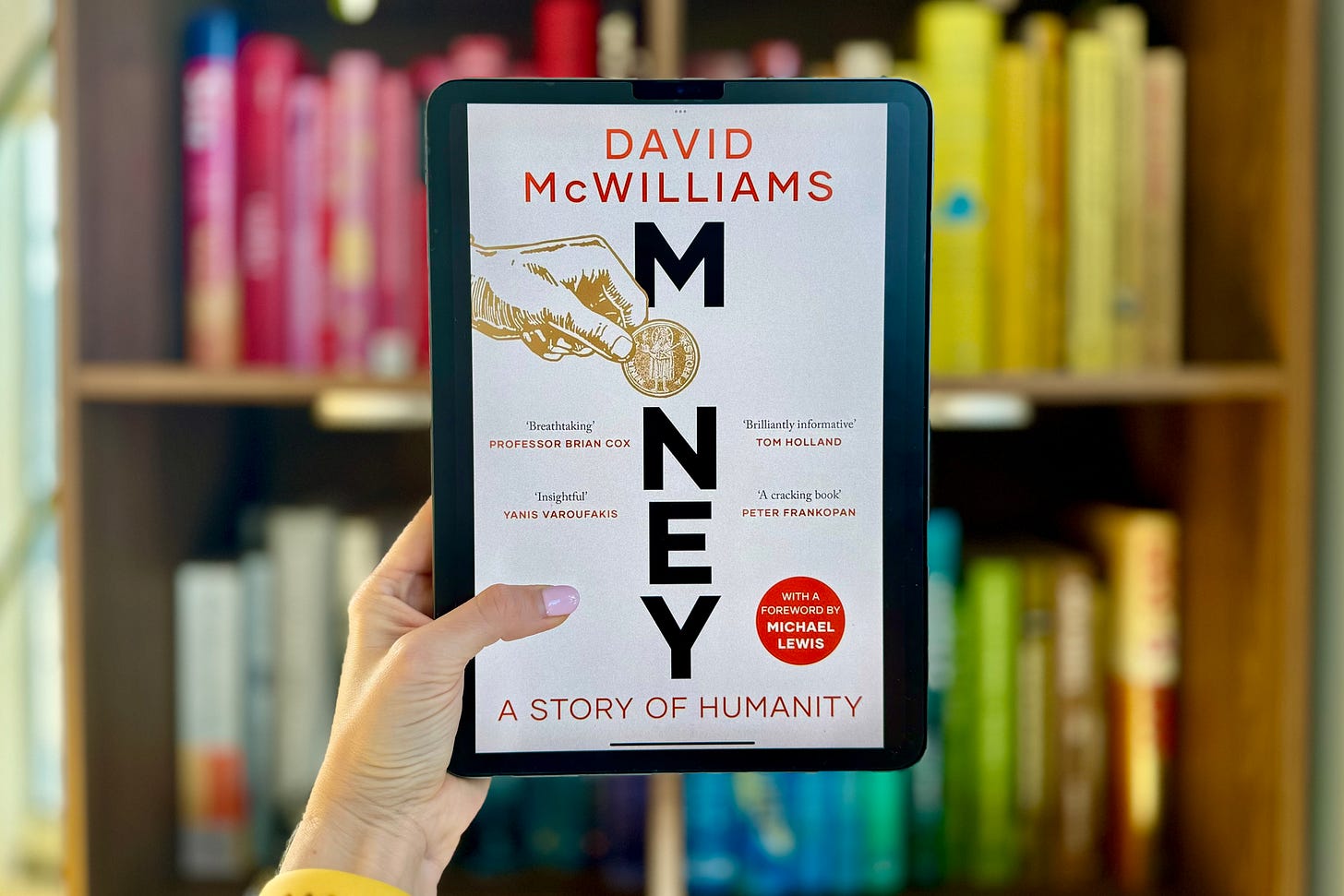Did we make money, or did money make us?
As books on money go, none are as fun as David McWilliams’ ‘Money’.
We think about money all the time. We think about how to get more of it, how to stretch it further, how to give the appearance of having it. But rarely do we think about money as its own main character: how it developed, how it shaped us, and how much the world as we know it depends on the systems we’ve developed for managing money. In Money: A Story of Humanity, McWilliams explores the role of money as a social technology.
I knew from the first sentence that I’d like this book — McWilliams writes in a style even simpler than someone like a Gladwell or a Lewis, and call me simple-minded, but it makes for fun reading. McWilliams builds a compelling case for the argument that human and social development drove, but ultimately was driven by, money. “Money is a defining technology of humanity,” writes McWilliams. “Over the past five millennia, we Homo sapiens have become plutophytes—a species adapted by and constantly changing with money.”
I was particularly riveted by the story of Hitler’s plan to destabilize the British pound, and appreciate the author’s ability to leverage these vignettes for education. On a final note, if you meet the author at a party, don’t get him started on the subject of crypto.
I read the eBook version, but I imagine the audiobook would also be fun.
Author: David McWilliams
About: How money evolved — and how it evolved us
Rating: 4/5
Favourite quote: “Money’s promise was, and still is, the possibility of personal upward social mobility.”
Mental models
Bull trap
A ‘denial’ phase of an economic downturn, where buyers dismiss a correction in prices and enter a short buying frenzy, creating a ‘bull trap’ — “the illusion of a new upward movement, when in fact the spell has already been broken.” Something similar seems to happen in other areas of life shortly before the end.
The paradox of aggregation
This economics-derived mental model speaks to a particularly timely yet also timeless problem: the idea that what is good for the individual is not always good for the collective. Immediately I see climate change in this problem: flying is good for me and bad for the world. In Money, McWilliams gives the example of a housing panic, when everyone tries to sell. One person selling might be a net positive; everyone selling means a flooded market where no one can sell (and no one is buying).
Did you read Money? Let me know what you thought.
Related reads:
Sapiens: A Brief History of Humankind (Yuval Noah Harari, 2011)
How Economics Explains the World: A Short History of Humanity (Andrew Leigh, 2024)
Enlightenment Now: The Case for Reason, Science, Humanism, and Progress (Steven Pinker, 2018)


